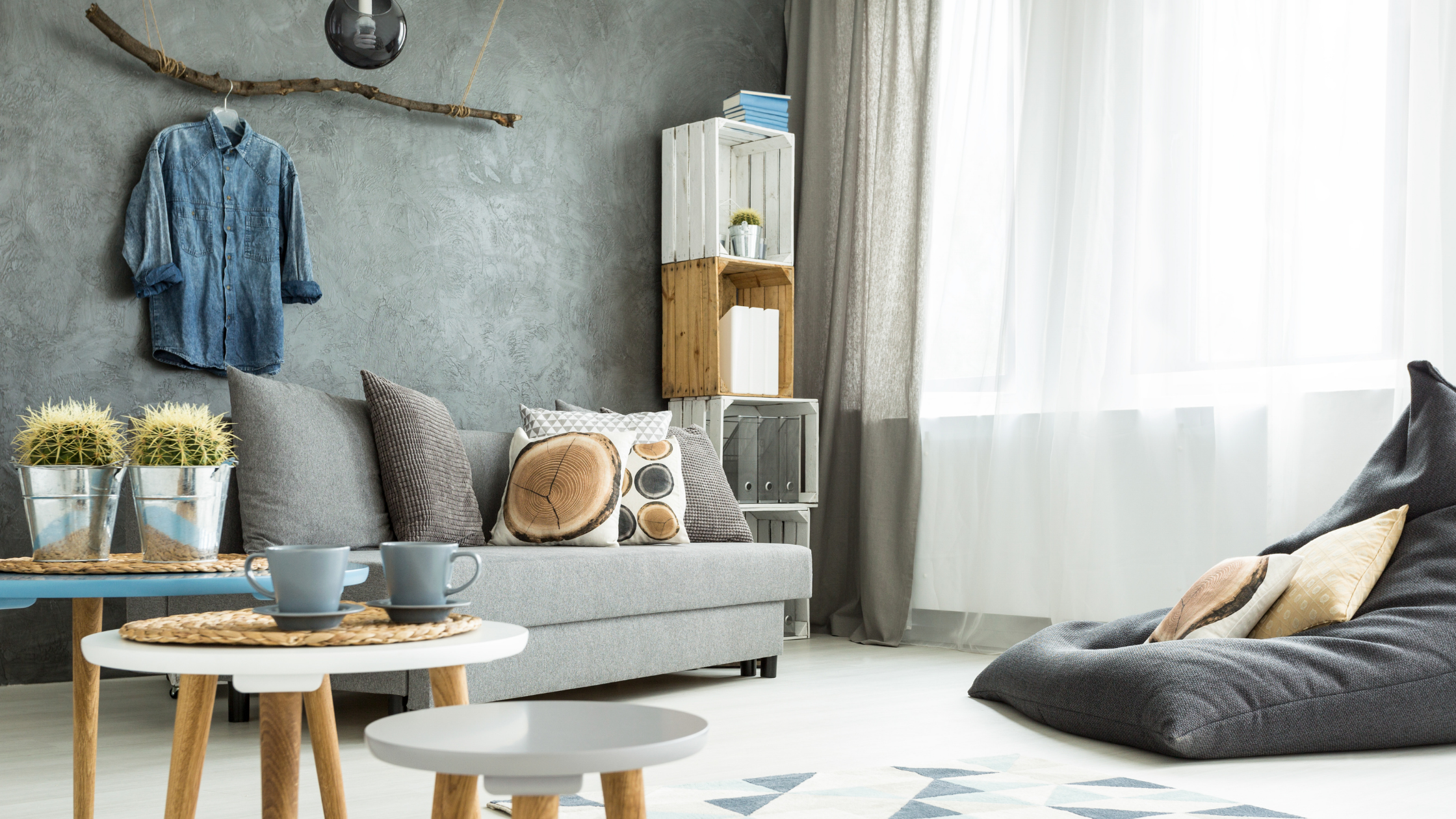The Connection Between Our Environment & Our Mental Health

Our environment affects how we think and what we feel. A messy, stressful environment can have a cumulative, detrimental impact on our mental health, and research finds that these negative environments can raise our cortisol levels which leads to anxiety and depression.
Research also shows that chronically cluttered spaces make it more difficult for people to take positive, proactive actions to improve their mental health, as the chaos of a stressful environment may lead to unhealthy habits.
It all sounds rather doom and gloom. However, it is possible to take control of your environment to improve your mental health.
Clean
Cleaning the space you live in might sound like trivial advice. However, cleaning has two potential benefits: the physical activity of cleaning can help you relax and gain a sense of control, and reducing the clutter in your space may help you focus on improving your mental health. That’s because the act of cleaning releases endorphins, which help improve our mood and focus.
However, just telling you to clean isn’t particularly helpful — especially if you have a bad relationship with cleaning. Here are a few tips to get you started in the right direction:
- Start small: you don’t need to clean your entire house in one day. Just spend 15 minutes cleaning the biggest priority in your space.
- Focus on one task: it’s easy to jump between cleaning tasks without finishing anything. Instead, choose a room or space to clean and finish it before you move on.
- Choose a style: cleaning gives you room to develop an entirely new interior design style. You can opt for a minimalist approach that values quality over quantity — this allows you to create a distinct style that is easy to maintain and motivates you to stay on top of cleanliness.
- Get others to help: if you live with other people, try to get them on board with cleaning habits. This means you won’t overburden yourself, and you’ll likely improve your relationship with those around you.
Proactively cleaning sounds like a Mary Poppins remedy, but it really can improve your mood and help improve your mental health. By taking control of your home environment, you actively alleviate stress and can start to take more steps like exercising regularly and reconnecting with nature.
Reconnect with Nature
Many of us live between our homes and workspaces. This gives us little time to connect with nature, which can leave us feeling stressed out. To overcome this, you should consider grounding yourself in nature to boost your mental health and improve your resilience.
To reconnect with nature you can consider any of the following options:
- Exercise in green spaces
- Consider growing your own fruit and veg in the warmer months
- Support sustainability efforts in your local community
- Start healthy activities like cycling or travel
Spending time in nature can help reduce the impact of stress and improves your chances of fighting off depression and anxiety. When you’re in green spaces, it is possible to compartmentalize and you may have an easier time “switching off” from the source of your stress.
Mental Spaces
It’s not always possible to control your environment or spend time alone in nature — particularly if you are young or work in a toxic environment. To overcome this, you can start building a clear mental space in which you use your imagination to find resilience and de-stress.
Building a safe mental space is all about visualizing an area where the source of your stress is either nonexistent or is manageable. It should be highly personalized and can take on any shape or size that you can imagine. Regardless of what your safe mental space looks like, consider following the following steps:
- Develop a sanctuary: think of yourself as a writer who is creating a perfect imaginary space. To do this, you can look through old photo albums or watch videos that inspire your imagination. This space should be filled with people you love and should engage all 5 senses.
- Relax: connecting with your mental space is easier when you are comfortable and feel confident that you won’t be interrupted. You can do this by going to a personal room like a bedroom, or can wear a pair of noise-cancelling headphones if you’re in public.
- Return often: your safe space will feel more real if you return regularly. You can do this in healthy, productive ways by journaling about the space or by setting a particular time of day when you visualize your safe space.
Conclusion
Our environment has a direct impact on our mental health. When we live in a stressful, cluttered space it can feel impossible to overcome life’s challenges. However, taking proactive steps to clean and improve our environment can release endorphins which give us the energy to tackle almost all obstacles.
About the Author

Katie Brenneman is a passionate writer specializing in lifestyle, mental health, education, and fitness-related content.
When she isn't writing, you can find her with her nose buried in a book or hiking with her dog, Charlie. To connect with Katie, you can follow her on Twitter



